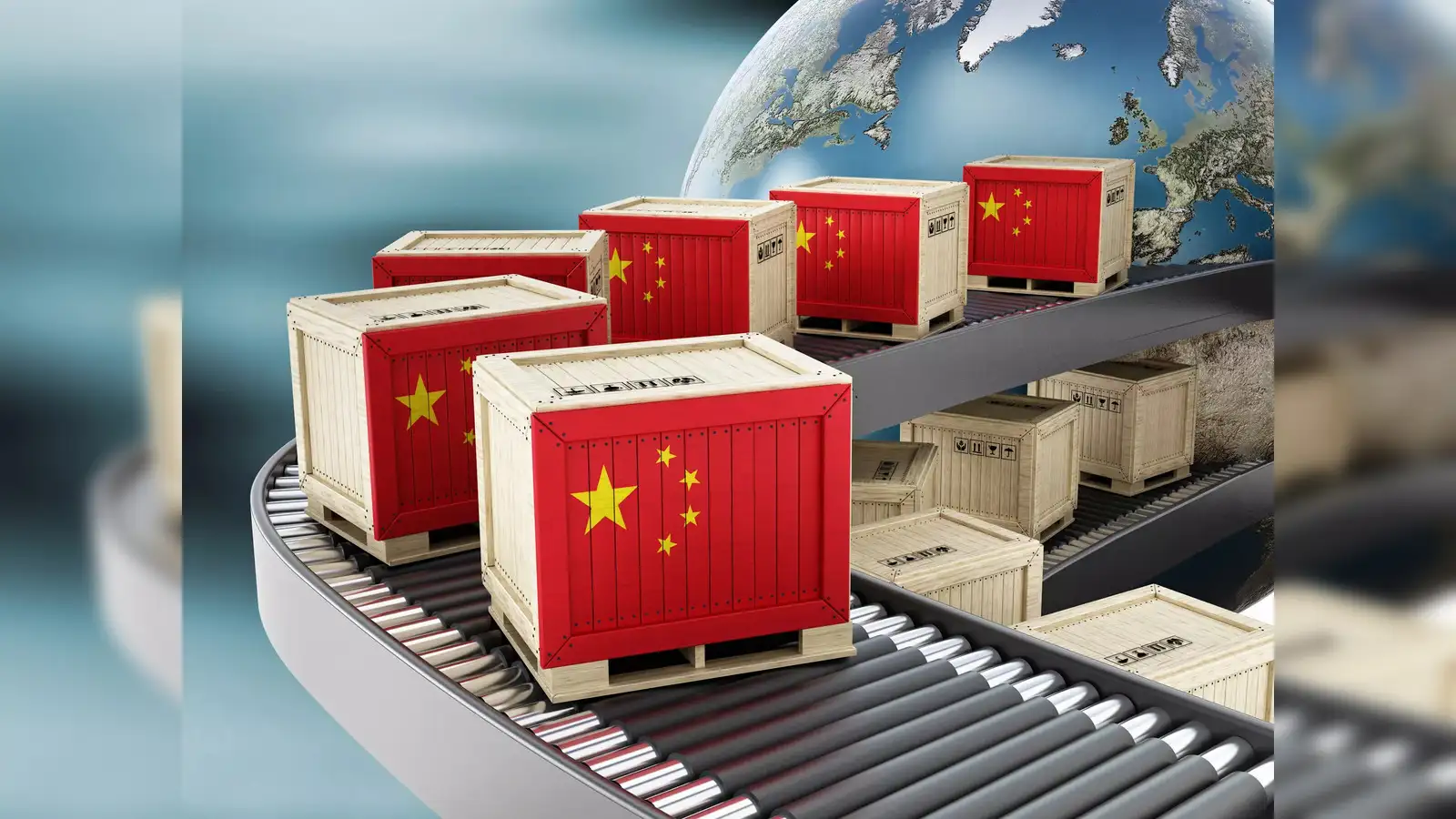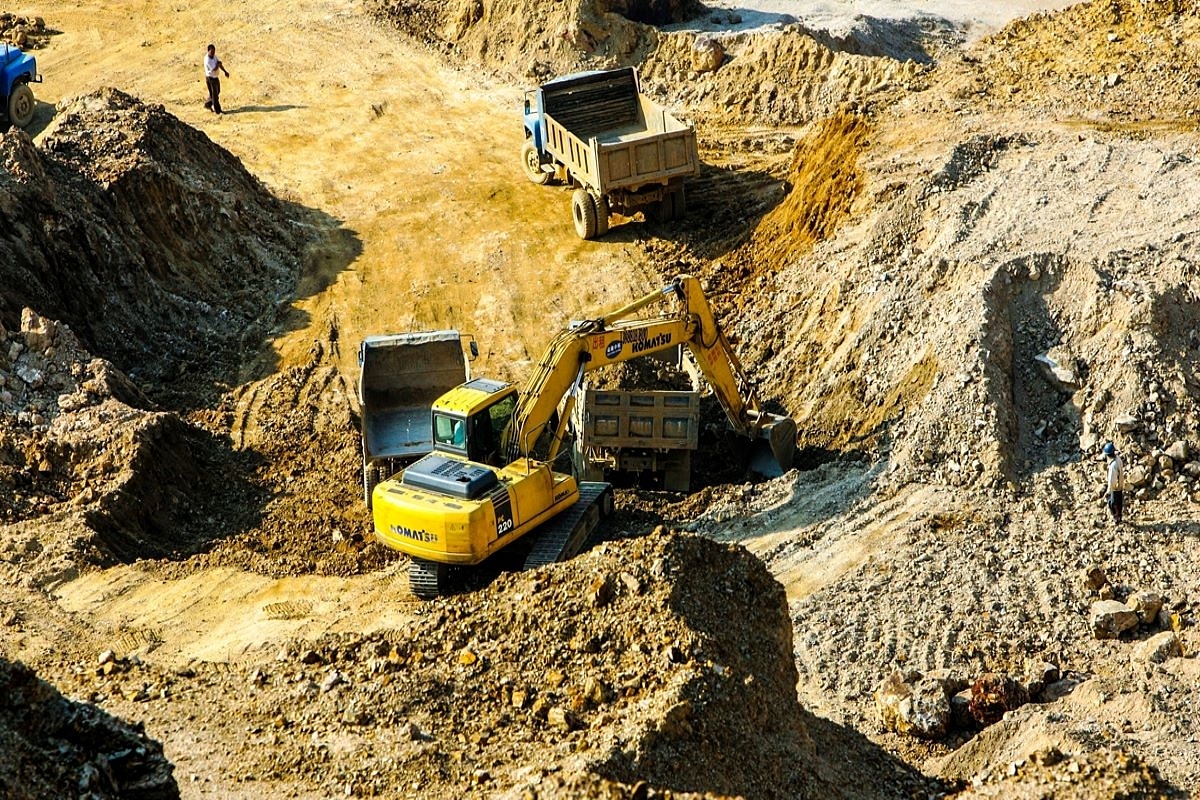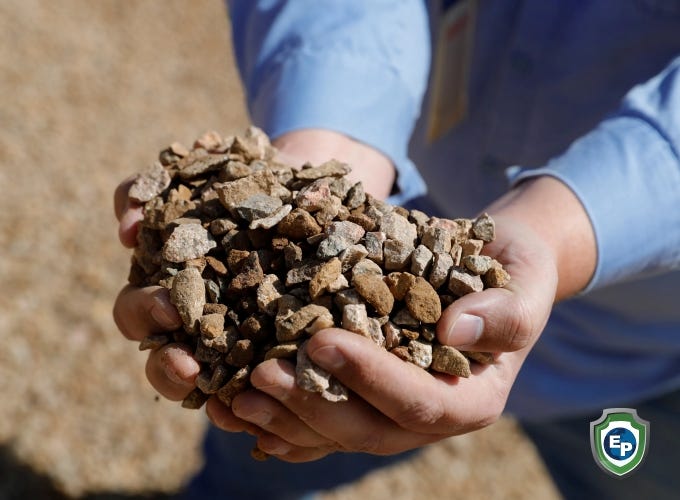China’s Stronghold On Minerals Is Giving Other Countries A Run To Look For Alternatives; Africa Shines, China Already Has Its Foothold, What Course Should Countries Take?

The demand for critical minerals essential for clean-energy technologies, consumer goods, and defence applications is soaring like never before.
These metals are the backbone of the modern economy and necessary for products like phones, electric vehicles, and satellites, among many others.
Projections indicate that in the coming decades, the global need for minerals such as cobalt, copper, lithium, and manganese will be significantly higher than current production levels.
Hence, the outlook creates a strategic challenge for other countries, especially the United States, given that China currently controls a major portion of the global supply chains for these minerals, producing 60% of the world’s supply and handling 85% of the processing capacity.
 Looking To Africa, China’s Already There
Looking To Africa, China’s Already There
To address the increasing demand and diversify the supply, Western policymakers are increasingly turning their attention to Africa, which holds approximately one-third of the world’s mineral resources.
However, China has consistently outpaced its competitors in securing control over these critical minerals.
As countries rush to stabilize their supply chains, China has established itself as a leader in the minerals race over other viable options gaining a substantial advantage with far-reaching consequences.
China’s strategic dominance in the global mineral supply chain is complex.
Central to this strategy is its control over the mining and processing of key minerals such as lithium, cobalt, and rare earth elements, essential for producing high-tech and green energy products.
Over recent decades, China has strategically invested in mining operations both domestically and internationally, particularly in resource-rich regions like Africa and South America. Thus, China has secured a steady supply of raw materials, which has helped it influence global market terms and prices.
Additionally, China’s investment in refining and processing capabilities has reinforced its dominance. While many countries possess significant mineral reserves, they often lack the necessary infrastructure and technology to process these minerals.
China has developed a vast network of processing facilities, ensuring that raw minerals from around the world are refined in Chinese factories. This vertical integration, encompassing both mining and processing, grants China unmatched control over the entire supply chain.
 Breaking China’s Dominance
Breaking China’s Dominance
The geopolitical ramifications of China’s dominance in the mineral sector are significant – with the global demand for clean energy solutions and advanced technology soaring – nations are increasingly relying on Chinese supplies, raising concerns about national security and economic stability.
This has prompted efforts to diversify supply chains, a complex and time-intensive process requiring substantial investment in mining and processing infrastructure, as well as balancing environmental and regulatory hurdles.
Moreover, China’s strategy of cultivating close relationships with mineral-rich nations through investments and infrastructure projects has strengthened its position.
These partnerships often involve long-term agreements ensuring access to crucial resources, further solidifying China’s leadership in the minerals industry.
However, many of these agreements favour Chinese companies and workers, ensuring that economic benefits predominantly accrue to China.
 The Carbon Footprint
The Carbon Footprint
As the world confronts the challenges of climate change and transitions to sustainable energy sources, the importance of China’s mineral strategy becomes increasingly evident.
The technologies driving the green revolution, such as batteries, wind turbines, and solar panels, heavily rely on minerals controlled by China. Thus, it grants China significant influence over the pace and direction of global efforts to address climate change.
Beijing’s Stronghold In Africa
Beijing’s entrenched position is the result of a long-term strategy pursued through initiatives like the Belt and Road Initiative. State-backed Chinese companies have acquired ownership stakes in mining firms across five continents.
In Africa, where China is already deeply embedded, examples include the Democratic Republic of Congo (DRC), a major cobalt supplier, where Chinese entities hold interests in nearly all producing mines.
In recent years, China has intensified its acquisitions. Chinese mining and battery companies have injected $4.5 billion into lithium mines in the last two years alone and are driving much of Africa’s lithium projects in countries like Namibia, Zimbabwe, and Mali.
Projections suggest that by 2025, China could secure a third of the world’s lithium mining capacity.
 Selling Short
Selling Short
However, China’s dominance in the mineral sector hasn’t translated into benefits for Africans as, typically, its contract concessions are opaque and heavily favour Beijing.
Recently, DRC President Felix Tshisekedi journeyed to Beijing to renegotiate a $6 billion infrastructure-for-minerals deal with Chinese leader Xi Jinping, which has been in place since 2008.
Despite sending billions in minerals to Beijing, little infrastructure has materialized in return for the DRC. Moreover, Chinese-owned and operated mines prioritize environmental mitigation and worker safety less than Western competitors.
Beyond extraction, China also controls the refining and processing of these minerals. Ideally, the United States and its allies could collaborate with Africans to establish a critical mineral supply chain free from Chinese influence.
However, as some American car manufacturers and others are discovering, this is easier said than done. With a substantial lead in mining infrastructure development and financing operations, China has a strong foothold throughout the continent, leaving the United States playing catch-up.
 Working Out Possibilities
Working Out Possibilities
In response to China’s influence, other nations are taking action, and efforts to revive domestic mining, invest in new technologies, and forge strategic partnerships are underway.
Western policymakers are increasingly focusing on Africa, which holds about one-third of the world’s mineral resources, to meet demand and diversify supply chains.
This increased international attention on Africa’s critical minerals could contribute to the continent’s prosperity and stability. Many African countries have high expectations for how their mineral resources can drive development.
Senior U.S. policymakers have expressed optimism about the potential of Western-backed mining to transform African economies.
However, there’s also concern that intensified resource development could exacerbate economic inequalities, corruption, and instability in Africa, as has often been observed.
The United States and its allies can collaborate with African nations to ensure that the benefits of these resources primarily benefit Africans, but they must first overcome the significant influence China has established on the continent.
However, these efforts encounter significant obstacles in challenging China’s entrenched dominance and its intricate network of controlled supply chains.
Replicating China’s integrated approach requires substantial complexity and capital investment, making it improbable for any country to rival China’s position in the foreseeable future.
 The Market Challenge
The Market Challenge
Western business interests have been cautious about investing in countries with weak governance or subpar labor practices, common in certain African nations.
Despite the presence of major and sophisticated mining companies globally, perceptions of labor-intensive artisanal mining in Africa can be difficult to overcome, adversely affecting the perception of the continent’s mining sector.
This presents a dilemma- Western investment is crucial to improving labor and environmental standards in these challenging environments.
Increasing market prices are typically the most effective means to encourage more Western investment in Africa’s natural resources, as these are predominantly private-sector enterprises.
However, challenges persist in this regard.
The mining industry has historically been subject to boom-and-bust cycles, and critical minerals today are no exception.
For example, a recent influx of Indonesian cobalt into the market has led to a drop in prices from $40 per pound a year ago to around $15 this month. In May, the final construction of an Idaho cobalt project was halted due to market conditions.
Further complicating the situation, evolving technologies may alter the composition of current batteries, adding complexity to long-term investment decisions.
Additionally, ongoing uncertainty surrounds the treatment of mineral sourcing for U.S. tax law purposes. Depressed prices for these crucial materials threaten to exacerbate the supply predicament even further.
Certainly, historical exploitation of natural resources has often been a catalyst for conflict across Africa.
Presently, the accessibility of minerals in the eastern Democratic Republic of Congo (DRC) has empowered armed groups engaged in human rights violations.
Similarly, violence in Mozambique’s Cabo Delgado region is partially fueled by grievances regarding mineral resource development.
In an effort to mitigate investment risks in developing regions, the United States government has overhauled financing agencies such as the U.S. International Development Finance Corporation and the Export-Import Bank. However, these agencies have been slow to provide support for mining projects.
The Last Bit, China’s dominance in the minerals arena stems from a meticulously crafted strategy encompassing resource acquisition, processing capabilities, and geopolitical maneuvering.
While other nations are striving to narrow the gap, China’s significant head start and holistic approach position it as a formidable leader in the global minerals market.
The repercussions of this dominance will likely shape the economic and political arena in the foreseeable future as countries work to secure their supply chains.
However, China has already beaten them at this game, especially in mineral-rich Africa.
So, how will the world handle and break China’s hold on critical minerals?
Through a diplomatic strategy that emphasises the urgent need for strategic planning and international collaboration to outpace China!




